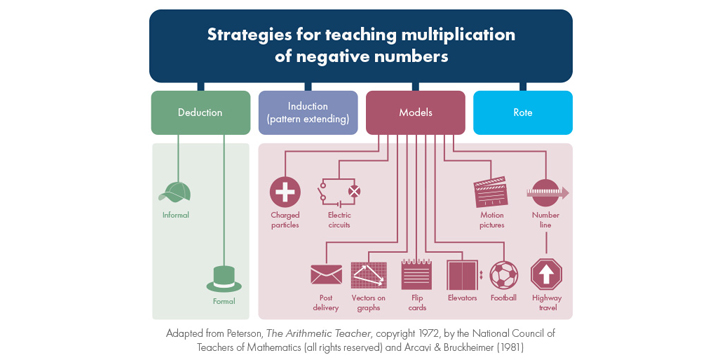12 December 2018

What does research suggest about effective ways to introduce negative numbers?
- The idea of negative numbers may feel odd and counterintuitive to students
- Students need to have a perception of number as both counting and measurement, as preparation for learning about negative numbers
- An early focus on subtraction and multiple concepts of zero is important
- Acknowledging negative numbers when teaching subtraction may be effective, but waiting until students have a sense of the structure of number systems to explore them more fully is suggested
- Students may be confused between negative numbers, decimals and fractions
- Teachers should carefully consider their language around negative numbers, especially the use of the words ‘minus’ and ‘negative’
- There are many useful models and metaphors for teaching negative numbers, but no one is totally representative on its own and all have limitations
- Students should understand the minus sign in at least three senses: unary, binary and symmetric
View EspressoView in Norwegian